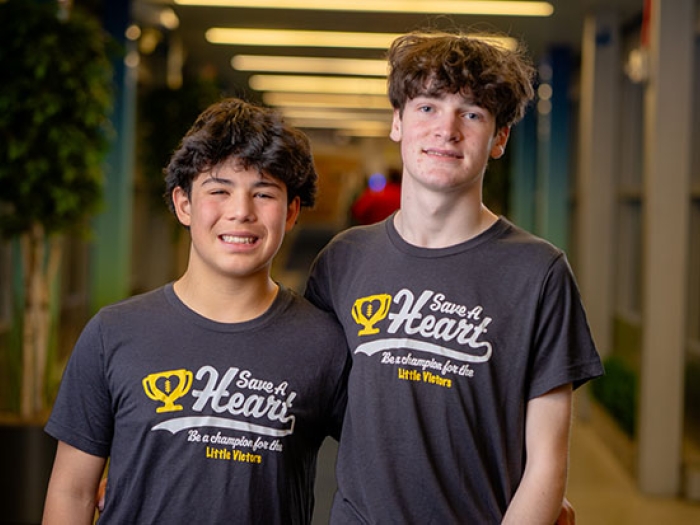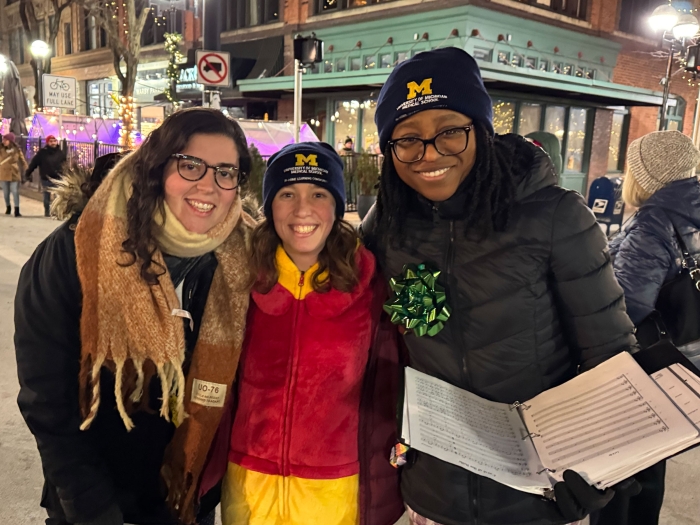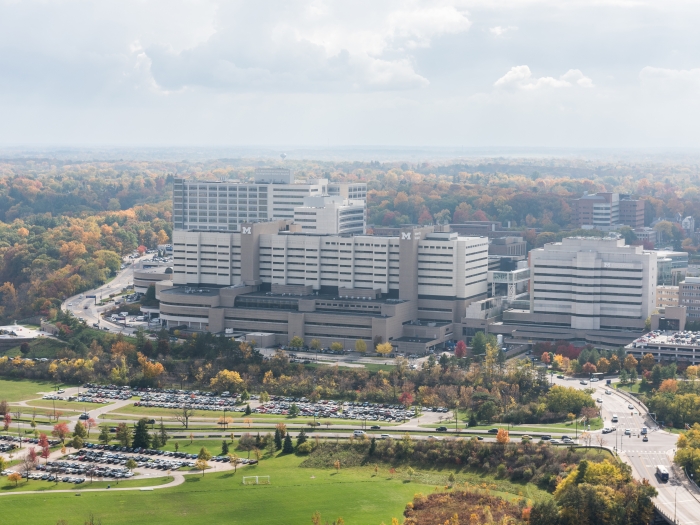
Dozens of faculty, staff, and learners gathered on December 2 for the Unlocking Creativity workshop, an event co-hosted by RISE and the Academy of Medical Educators. Designed to explore innovative approaches to healthcare challenges, the workshop offered participants a chance to consider new methods for driving change in healthcare and health education.
The event began with a presentation by Rajesh Mangrulkar, the executive director of RISE, who introduced the four types of creative thinking outlined in the Harvard Business Review article “Cultivating the Four Kinds of Creativity” by Gabriella Rosen Kellerman and Martin E.P. Seligman: splitting, figure-ground reversal, distal thinking, and integration. These concepts offered a structured lens through which participants could explore their own creativity styles and develop innovative solutions. Mangrulkar emphasized the importance of adopting these diverse approaches to rethink traditional problem-solving and spark meaningful change in education.
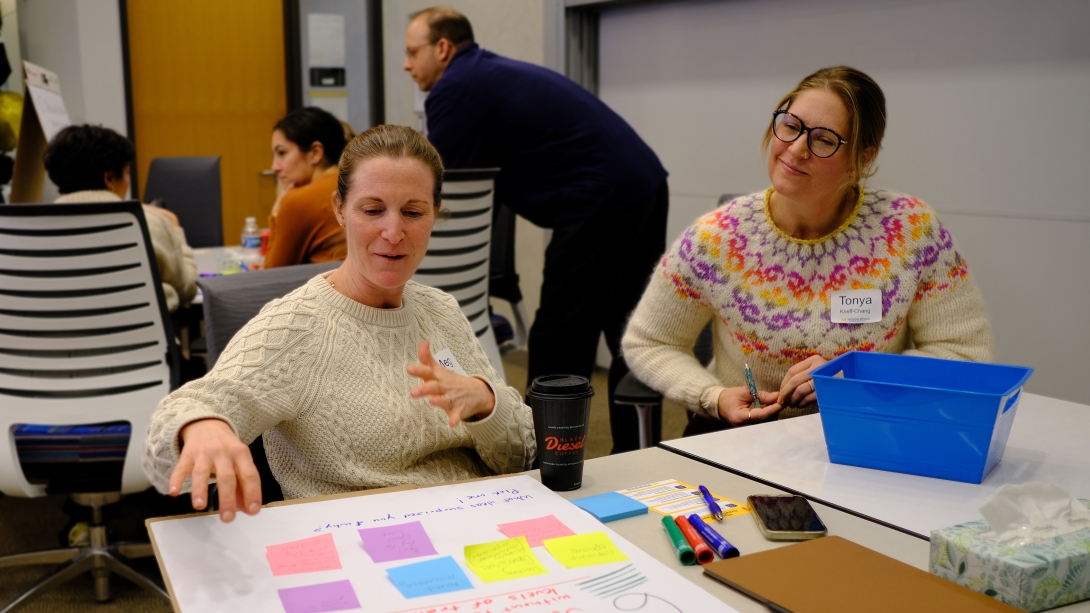
Attendees then engaged in small-group brainstorming sessions, tackling a range of complex questions related to healthcare access, improvements in health science pedagogy, and innovations in interprofessional care. The sessions facilitated the exchange of ideas, with participants filling walls with bold ideas showcasing diverse concepts and solutions. Workshop facilitators included Emily Abdoler, Rachel Gottlieb-Smith, Meg Wolff, Paula Thompson, and Malak Elshafei.
Abdoler, who leads the Academy of Medical Educators, highlighted the collaborative nature of the event and the role of bold inquiry in sparking innovation. “Workshops like this demonstrate the value of bringing together individuals with diverse expertise to tackle complex challenges,” said Abdoler. She emphasized the central role of audacious questions in driving creativity and change. “Audacious questions push us to rethink boundaries, challenge assumptions, and envision solutions we might not otherwise consider. They are a catalyst for the kind of transformative thinking that can lead to real progress in healthcare and education,” she explained. Abdoler noted how the partnership between RISE and the Academy underscored the collective strength of interdisciplinary collaboration.
Julie Piazza, a RISE Cohort 5 Innovator and senior project manager in the Office of Patient Experience at Michigan Medicine, echoed this sentiment. “The workshop reminded me of the power of diverse voices in generating fresh ideas. It’s not just about thinking outside the box — it’s about realizing there is no box when we bring together varied expertise and experiences.”
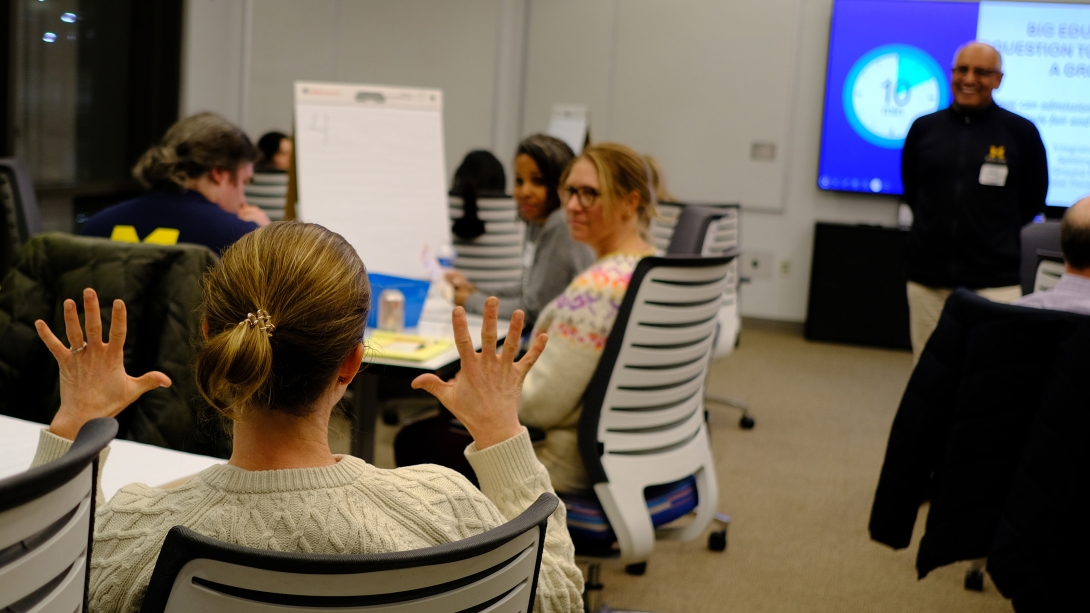
After group work, participants reconvened to share their insights. From creative ways to enhance health education accessibility to pioneering strategies for patient-centered care, the ideas were as creative as they were diverse. Ann Fitzsimons, Nursing Innovation Portfolio Manager and Engagement Specialist of the Healthcare Innovation Impact Program (HiiP) at the U-M School of Nursing, highlighted the value of interdisciplinary collaboration. “This experience reaffirmed how essential it is to approach challenges from multiple angles. The collective brainstorming today was a great reminder of how innovation thrives in spaces where ideas from different disciplines intersect.”
Participants left the event equipped with new tools to think creatively and collaboratively. Many noted how the workshop encouraged them to challenge conventional methods and reimagine possibilities for the future of healthcare.
The Unlocking Creativity workshop exemplified the commitment of both RISE and the Academy of Medical Educators to fostering a culture of innovation and collaboration across Michigan Medicine and beyond. This workshop also marked the first in a new series of events that RISE and the Academy will be offering in 2025, aimed at continuing to inspire forward-thinking ideas and community-driven solutions.
